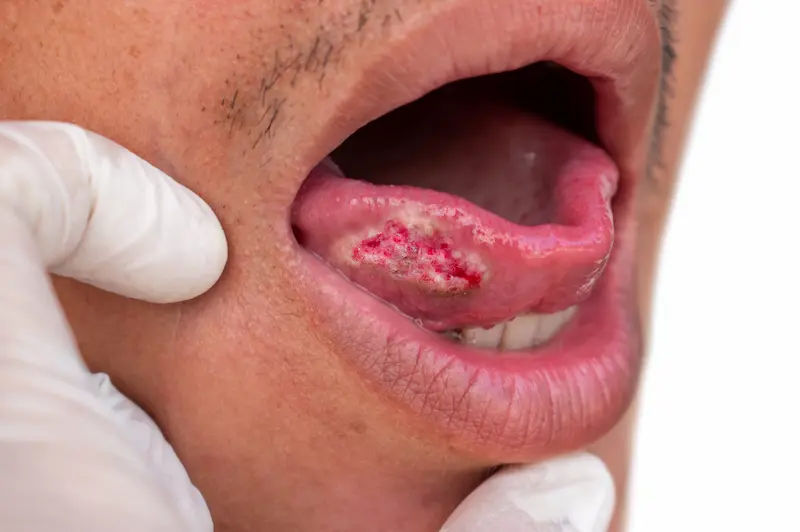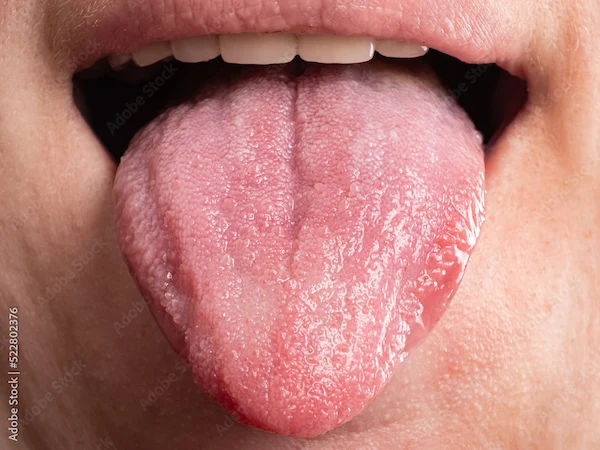Early Stage Tongue Cancer: Key Signs to Spot
Learn how to spot early signs of tongue cancer, including key symptoms, risk factors, and prevention tips. Early detection can greatly improve treatment outcomes; know what to watch for.

Written by Dr. Mohammed Kamran
Reviewed by Dr. D Bhanu Prakash MBBS, AFIH, Advanced certificate in critical care medicine, Fellowship in critical care medicine
Last updated on 13th Jan, 2026

Cancer is a word that can bring fear and uncertainty, but early detection can make a world of difference, especially when it comes to tongue cancer. Recognising the early signs can help in seeking timely treatment and improving outcomes. This article will guide you through the key symptoms, causes, and steps you can take if you suspect something might be wrong.
What Is Tongue Cancer?
Tongue cancer is a type of oral cancer that develops in the cells of the tongue. It usually begins as a small, painless sore or lump but can grow and spread if left untreated. The earlier it is detected, the better the chances of successful treatment.
Key Signs to Watch For
Early-stage tongue cancer may not always cause noticeable symptoms, but here are some warning signs to be aware of:
1. A Persistent Sore or Ulcer: A painless or painful sore on the tongue that doesn’t heal within two weeks.
2. Red or White Patches: Unusual red (erythroplakia) or white (leukoplakia) patches that don’t go away.
3. Lump or Thickening: A noticeable lump, thickening, or rough spot on the tongue.
4. Pain or Numbness: Unexplained pain in the tongue, mouth, or jaw, sometimes spreading to the ear.
5. Difficulty Swallowing or Speaking: Trouble moving the tongue, chewing, or speaking clearly.
6. Bleeding: Unexplained bleeding from the tongue without any injury.
7. Bad Breath: Persistent bad breath that doesn’t improve with oral hygiene.
If you notice any of these symptoms, it’s important to consult a doctor—even if they seem minor.
What Causes Tongue Cancer?
While the exact cause isn’t always clear, certain factors increase the risk:
Tobacco Use: Smoking cigarettes, cigars, or chewing tobacco significantly raises the risk.
Alcohol Consumption: Heavy drinking, especially when combined with tobacco, increases the likelihood.
HPV Infection: Some strains of the human papillomavirus (HPV) are linked to oral cancers.
Poor Oral Hygiene: Long-term gum disease or missing teeth may contribute.
Family History: A genetic predisposition can play a role.
Diet Low in Fruits & Vegetables: Lack of essential nutrients may weaken defences against cancer.
Consult Top Specialists
How Is It Diagnosed?
If you have concerning symptoms, your doctor may recommend:
Physical Examination: Checking the mouth, tongue, and throat.
Biopsy: Taking a small tissue sample for lab testing.
Imaging Tests: MRI, CT scan, or PET scan to see if cancer has spread.
Early diagnosis improves treatment success, so don’t delay seeing a specialist.
Treatment Options
Treatment depends on the cancer’s stage and location but may include:
Surgery: Removing the tumour and possibly nearby lymph nodes.
Radiation Therapy: Using high-energy rays to kill cancer cells.
Chemotherapy: Drugs to target cancer cells, often combined with radiation.
Targeted Therapy/Immunotherapy: Advanced treatments for certain cases.
How Can You Reduce Your Risk?
Prevention is always better than a cure. Here’s what you can do:
Quit Tobacco: The biggest risk factor—seek help to stop smoking or chewing tobacco.
Limit Alcohol: Reduce intake, especially if you also use tobacco.
Maintain Oral Hygiene: Brush, floss, and visit your dentist regularly.
Eat a Healthy Diet: Include plenty of fruits, vegetables, and antioxidants.
Get Vaccinated for HPV: The HPV vaccine can lower the risk of certain oral cancers.
Regular Check-ups: Early detection saves lives—see a doctor if you notice changes.
When to See a Doctor?
If you experience any unusual symptoms for more than two weeks, don’t ignore them. Early-stage tongue cancer is highly treatable, but delaying care can make treatment more difficult.
Need Help? Book a Consultation Today
If you or a loved one has concerns about tongue cancer, Apollo24|7 offers expert consultations and diagnostic tests. Early detection can save lives; schedule an appointment today for peace of mind.
Final Thoughts
Tongue cancer can be frightening, but knowledge is power. By recognising early signs and taking preventive steps, you can protect your health. Stay alert, prioritise oral hygiene, and seek medical advice if something feels off. Your well-being is worth it!
Consult Top Specialists
Consult Top Specialists

Dr. Amit Choraria
Surgical Oncologist
18 Years • MBBS, MS (Surgery) Fellow, Surgical Oncology, Tata Medical Center (FSO) Fellow, European Board of Surgery (Surgical Oncology) (FEBS) Fellow, Minimal Access Surgery (FMAS) Fellow, Indian Association of Gastrointestinal Endosurgeons (FIAGES) UICC Fellow, Royal Marsden NHS, London, UK Visiting Scholar, Plastic Reconstructive Surgery, CGMH, Taiwan Fellow, Robotic Surgical Oncology, Vattikuti Foundation, USA
Kolkata
Apollo Multispeciality Hospitals , Kolkata, Kolkata

Dr. Sanchayan Mandal
Medical Oncologist
17 Years • MBBS, DrNB( MEDICAL ONCOLOGY), DNB (RADIOTHERAPY),ECMO. PDCR. ASCO
Kolkata
MCR SUPER SPECIALITY POLY CLINIC & PATHOLOGY, Kolkata

Dr.sanchayan Mandal
Medical Oncologist
17 Years • MBBS, DrNB( MEDICAL ONCOLOGY), DNB (RADIOTHERAPY),ECMO. PDCR. ASCO
Kolkata
Dr. Sanchayan Mandal Oncology Clinic, Kolkata

Dr Gowshikk Rajkumar
Oncologist
10 Years • MBBS, DMRT, DNB in Radiation oncology
Bengaluru
Apollo Clinic, JP nagar, Bengaluru

Dr. Subhash Chandra Chanana
Oncologist
51 Years • M.B.B.S , M.S. (General Surgery), F.A.C.S (Oncosurgeon)
Gurugram
APOLLO SUGAR CLINICS GURUGRAM, Gurugram


